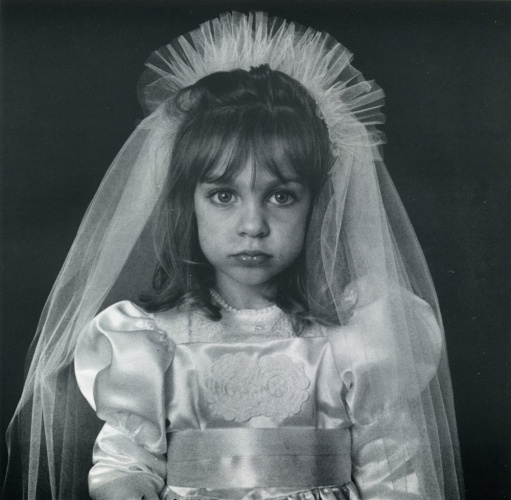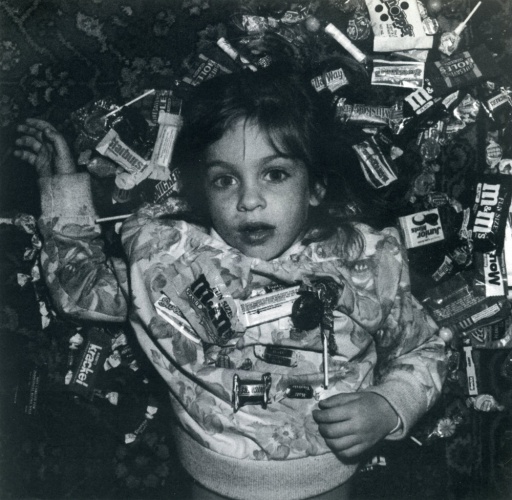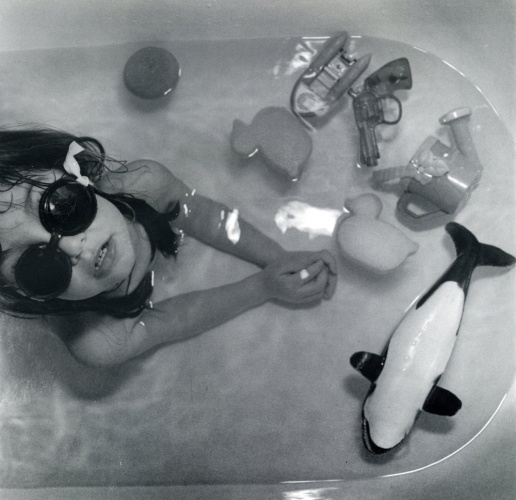Tony Mendoza
Tony Mendoza
June 1, 1995 - July 1, 1995
October 15, 1992
Family. I started mine late. I was 45 when I married for the first time. Carmen, my wife, was 33, but her history was ore typical: she had married in her twenties, for the wrong reasons, and after one child and six difficult years, she was divorced . I was the first man she dated after her divorce.
There were reasons why I was late getting married. For one, I have a pattern of doing everything late. I settled on a career – doing photography as art – at 33, after degrees and short careers in engineering and architecture. I signed the lease on my first apartment at 39. (I had always lived communally.) I had Lydia, my first and only child, at 48. I bought my first house at 49. Now at 51, I’m trying to embark on another career: I’m a tenure-track professor of art at a large midwestern university.
Another reason that I married late was that I never had enough money to afford a decent apartment or house. When I was an artist, living on the money I had made from photography shows and grants, I barely made enough money to house and feed myself. I had a seven year stretch during the seventies when I never earned more than eight thousand dollars a year, which was enough, because in those years I lived in a commune.
I also don’t want to underestimate how I might have beeb affected by my parents’ marriage. They’ve been married for 54 years and my mother tells me that my father has been the love of her life, but hardly a day has passed during all those years without an argument. It’s how they relate, but I’ve never liked it.
Nevertheless, when I finally married, I felt I was the luckiest person in the world. Carmen was a displaced Cuban, liberally educated in Boston, as I had been, and she was witty, beautiful and kind. I has never met anyone so fine in my 30 years of dating and living with women; marrying her felt like a gift, especially considering that I didn’t see myself as a great catch: I’m your basic artist-slightly neurotic, obsessed with my work, and generally difficult. I was also fortunate in another way; I had won a Guggenheim, a major grant, so money would not be a problem for a while.
I liked the fact that Carmen brought with her an instant family, since I was still unsure about having my own children. I saw myself as someone always destined to have money problems, so one child seemed enough. We practice birth control, but we were very fertile as a couple. We were careless twice, and Carmen became pregnant both times. We decided on abortions, but when she became pregnant a third time, also unplanned, we never hesitated; it was clear that the child we had conceived had to be born.
Marrying late and having a child late has some definite advantages. I will never be unfaithful to my wife; I’ve done all the dating and running around to last me a couple of lifetimes. And I was undoubtedly smarter about selecting a mate after 30 years experience of both successful and unsuccessful relationships. Marrying late also keeps you young, since you find yourself doing all those things that everyone else does during their twenties, like buying your first house, and waking up throughout the night to take care of an infant. You need plenty of energy and your body gets tricked into believing it’s younger. Another advantage is that you take better pictures for the family album. I had been photographing seriously for twenty years before my first child, so the odds favor that my family pictures will be good ones.
My intention with this project is to document this family, Tony, Carmen, Alex and Lydia, with pictures and a few words, but I must admit already to focusing more on Lydia than on the rest I admit I’m fascinated by her: she’s incredibly witty, beautiful, difficult, and so remarkably opinionated and confident for a three-year-old. I can’t imagine now why I was never interested in having children.




